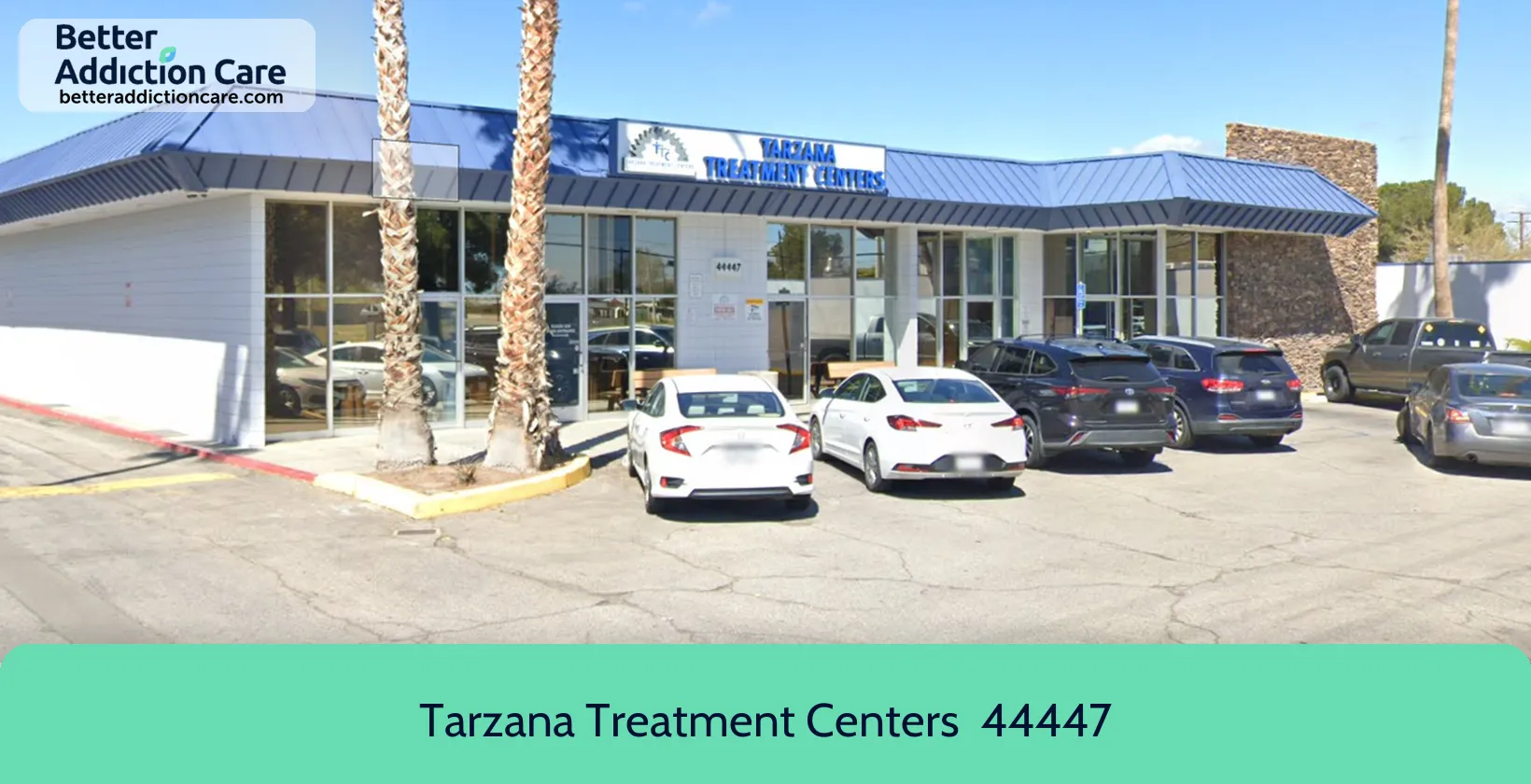Tarzana Treatment Center

Overview
Tarzana Treatment Center is a substance abuse treatment center for people seeking treatment near Los Angeles County. As part of their treatment modalities for recovery, Tarzana Treatment Center provides 12-step facilitation, group counseling, and family counseling during treatment. Tarzana Treatment Center is located in Los Angeles, California, accepting access to recovery (atr) voucher for treatment.
Tarzana Treatment Center at a Glance
Payment Options
- Access to Recovery (ATR) Voucher
- Medicaid
- Private health insurance
- Cash or self-payment
- Sliding fee scale (fee is based on income and other factors)
Assessments
- Comprehensive mental health assessment
- Comprehensive substance use assessment
Age Groups
- Adults
- Young adults
- Children/adolescents
Operation
- Private non-profit organization
Highlights About Tarzana Treatment Center
6.85/10
With an overall rating of 6.85/10, this facility has following balanced range of services. Alcohol Rehabilitation: 8.00/10, Drug Rehab and Detox: 6.31/10, Insurance and Payments: 6.00/10, Treatment Options: 7.09/10.-
Alcohol Rehabilitation 8.00
-
Treatment Options 7.09
-
Drug Rehab and Detox 6.31
-
Insurance and Payments 6.00
Accreditations
The Joint Commission:

The Joint Commission, previously known as JCAHO, is a nonprofit organization that accredits rehabilitation organizations and programs. Established in 1951, its mission is to enhance the quality of patient care and showcase excellence in healthcare delivery.
NAATP:

Established in 1978, the National Association of Addiction Treatment Providers (NAATP) is a professional organization dedicated to advocating for and representing entities involved in addiction services. NAATP is committed to advancing the field of addiction services and ensuring that top-tier addiction treatment remains both accessible and widely available.
Treatment At Tarzana Treatment Center
Treatment Conditions
- Mental health treatment
- Alcoholism
- Opioid Addiction
- Substance use treatment
- Co-occurring Disorders
Care Levels
- Intensive outpatient treatment
- Detoxification
- Aftercare
- Halfway house
- Outpatient
Treatment Modalities
- 12-step facilitation
- Group counseling
- Family counseling
- Individual psychotherapy
- Cognitive Behavioral Therapy
Ancillary Services
Languages
- Spanish
- Sign language services for the deaf and hard of hearing
Special Programs
- Clients with HIV or AIDS
- Pregnant/postpartum women
- Clients who have experienced trauma

Additional Locations
Common Questions About Tarzana Treatment Center
Contact Information
Read our Most Recent Article About Drug Addiction
DISCLAIMER: The facility name, logo and brand are the property and registered trademarks of Tarzana Treatment Center, and are being used for identification and informational purposes only. Use of these names, logos and brands shall not imply endorsement. BetterAddictionCare.com is not affiliated with or sponsored by Tarzana Treatment Center.










